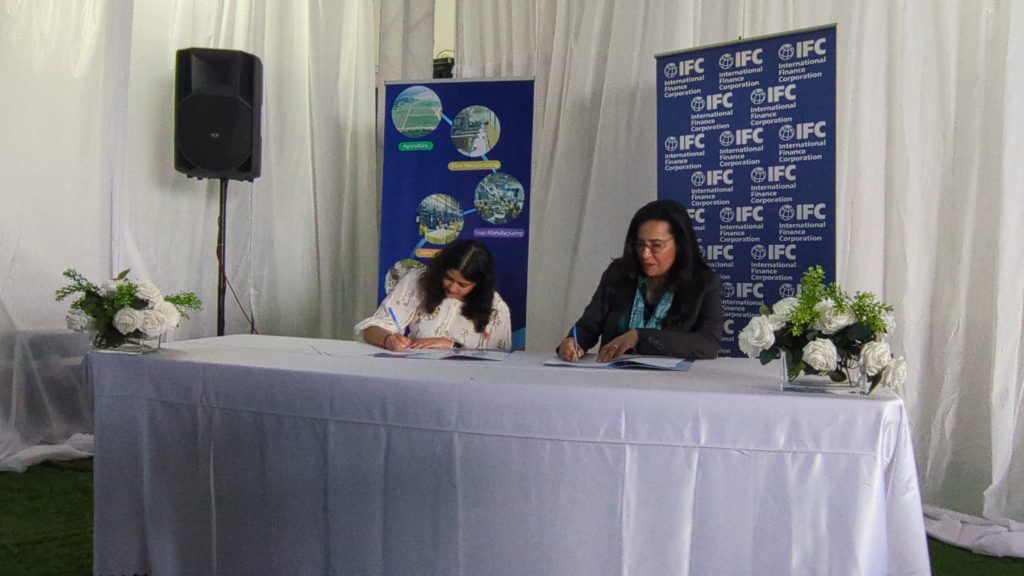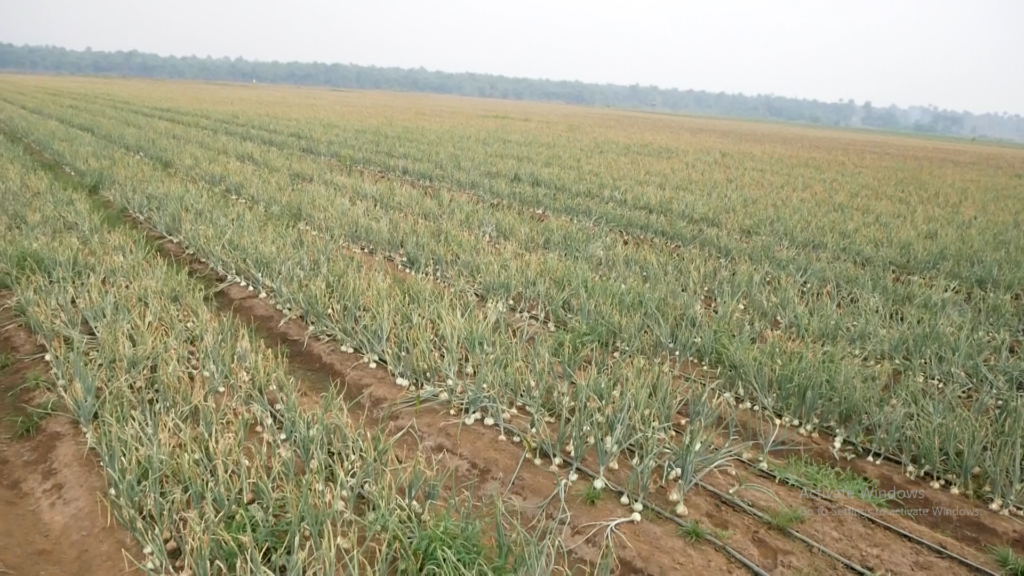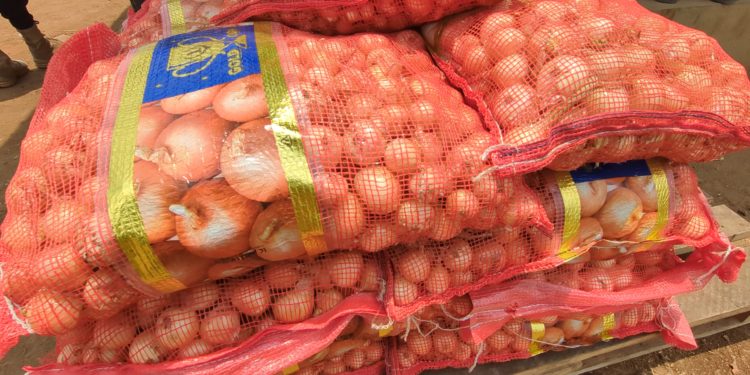By Kemo Cham

Pee Cee Holding, a leading consumer goods importer in Sierra Leone, has signed a landmark investment agreement with the International Finance Corporation (IFC) to expand local onion production in the country.
Under the agreement, IFC, the private sector development arm of the World Bank Group, is providing USD12million to Pee Cee Agriculture, the Agribusiness arm of Pee Cee Holding, which was formerly known as Pee Cee and Sons, to expand its onion farm. The company is currently the largest importer of onions in the country. With this agreement, it intends to end imports within five years, according to officials.
The agreement was signed at a ceremony at the Pee Cee Agricultural Onion farm in Lungi in the Port Loko District, on Monday, April 7, 2025.
The investment will help Pee Cee construct Sierra Leone’s First large scale, local-market-focused farming operation, positioning the country to become self-sufficient in onion production. The deal also entails boosting production of other cash crops, including maize and potatoes.
Mahesh Nandwani, CEO of Pee Cee Holding, is quoted in a statement saying that his company intends to demonstrate Sierra Leone’s ability to produce high quality produce at scale.
“This investment is a game-changer for Sierra Leone’s agricultural sector,” said Mr Nandwani. “With IFC’s support, we are proving that Sierra Leone can grow its own high-quality produce at scale, strengthening local supply chains, ensuring food security, skills training and jobs for future generations.
Established in 1965, Pee Cee has specialized in the import, distribution and marketing of frozen foods, ambient foods, commodities and beverages over the last five decades, with distribution outlets in neighbouring Guinea and Liberia.
As part of its diversification efforts, the company embarked on local production of some of its products, notably onions, potatoes and maize. The Pee Cee Agricultural Onion farm, which is located in what is considered the onion belt of Sierra Leone (Port Loko) currently cultivates 70 hectares of the crop. Under this agreement, the plan is to develop a fully integrated and mechanized 500 hectares of farmland that will produce more than 40, 000 tones of onions annually, along with other staple foods.
The company has over the last four years been working with IFC to prepare for this, with the latter providing advisory services to enhance its operations, strengthen management and help mitigate risks. This support has seen onion yields increased ten folds in the pilot project, aided by High-tech irrigation technology, modern machinery, and advanced storage systems.
Dahlia Khalifa, IFC’s Regional Director for Central Africa and Anglophone West Africa, said the partnership with Pee Cee will help Sierra Leone reduce its reliance on food imports and promote climate smart farming.
“Investing in sustainable agriculture is key to strengthen food security and economic resilience in Sierra Leone,” she was quoted in the joint statement released to coincide with the signing ceremony.
“Through our partnership with Pee Cee Holding, we are helping Sierra Leone reduce its reliance on food imports, promoting climate smart farming, laying the foundation for a more sustainable food system and setting a benchmark for agricultural development across the region,” she added in the statement.

Onion is one of the most sought-after groceries in Sierra Leone, with annual imports of about 10, 000 tonnes of the commodity, according to data from the government. There have been recurrent shortages of the products in recent years, which has led to hike in prices.
Henry Musa Kpaka, Minister of Agriculture, said Pee Cee’s investment in onion production not only seeks to end its imports, but that it is also part of his government’s vision of food self-sufficiency.
“Pee Cee is demonstrating what is at the heart of Feed Salone. One of the goals that we have in the strategy is to really eliminate or reduce importation of the main staples that we have, straight forward,” Mr Kpaka said at the signing ceremony.
The Minister called on other private sector players to emulate Pee Cee, singling out producers of rice and other basic commodities.
“We want to encourage people that are in the rice sector…we want to encourage people in poultry and egg…,” he said.
Kpaka also had praises for the IFC for investing in the venture.
“Part of the theory that we also have is to be able to bring investments like this; credible people that would (put) money behind local, good ideas with the technical support that has been poured here to make this success,” he said.






















